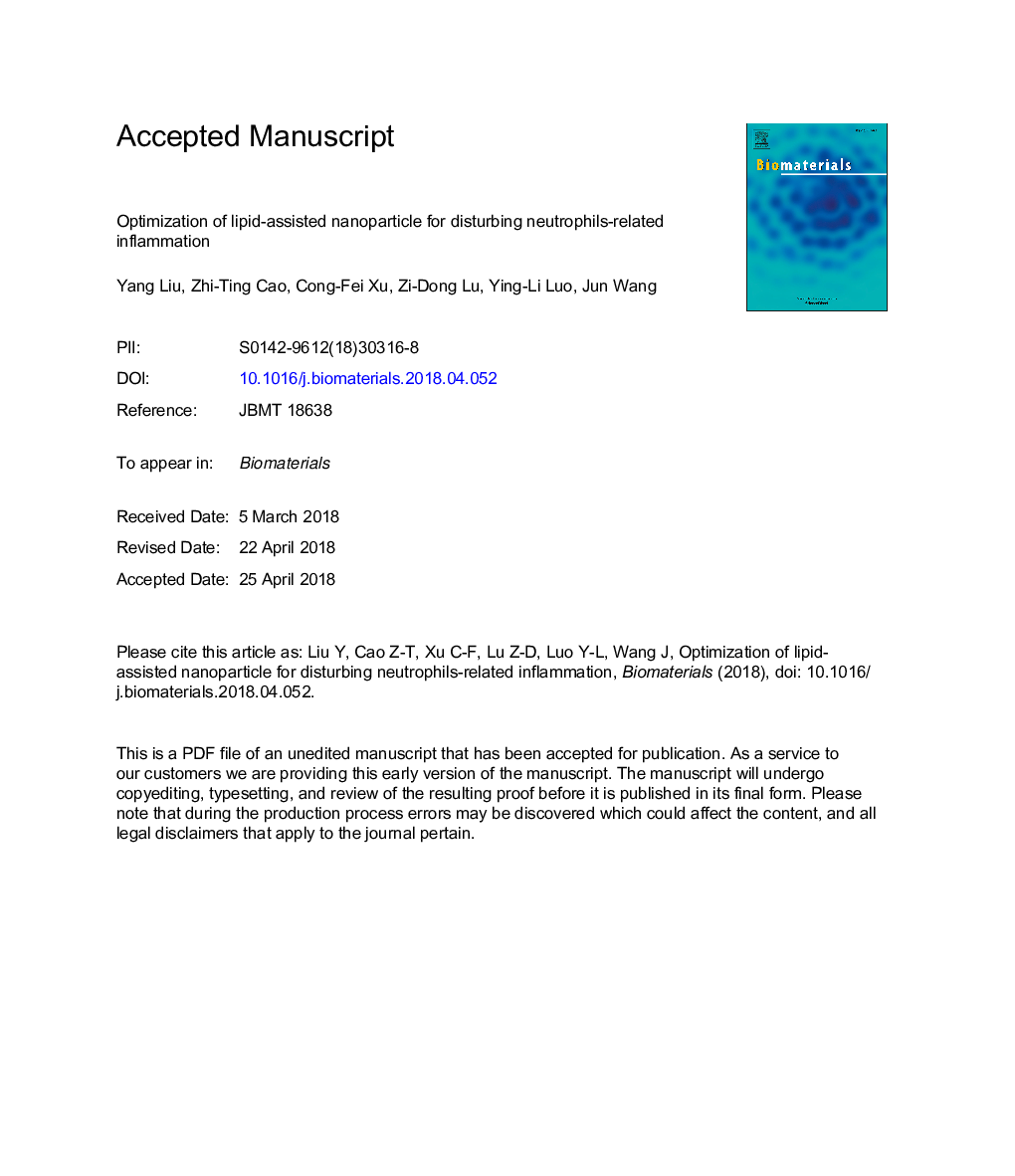| Article ID | Journal | Published Year | Pages | File Type |
|---|---|---|---|---|
| 6484484 | Biomaterials | 2018 | 39 Pages |
Abstract
Inflammation is closely related to the development of many diseases and is commonly characterized by abnormal infiltration of immune cells, especially neutrophils. The current therapeutics of inflammatory diseases give little attention to direct modulation of these diseases with respect to immune cells. Nanoparticles are applied for efficient drug delivery into the disease-related immune cells, but their performance is significantly affected by their surface properties. In this study, to optimize the properties of nanoparticles for modulating neutrophils-related inflammation, we prepared a library of poly(ethylene glycol)-b-poly(lactide-co-glycolide) (PEG-b-PLGA)-based cationic lipid-assisted nanoparticles (CLANs) with different surface PEG density and surface charge. Optimized CLANs for neutrophils targeting were screened in high-fat diet (HFD)-induced type 2 diabetes (T2D) mice. Then, a CRISPR-Cas9 plasmid expressing a guide RNA (gRNA) targeting neutrophil elastase (NE) was encapsulated into the optimized CLAN and denoted as CLANpCas9/gNE. After intravenous injection, CLANpCas9/gNE successfully disrupted the NE gene of neutrophils and mitigated the insulin resistance of T2D mice via reducing the inflammation in epididymal white adipose tissue (eWAT) and in the liver. This strategy provides an example of abating the inflammatory microenvironment by directly modulating immune cells with nanoparticles carrying genome editing tools.
Related Topics
Physical Sciences and Engineering
Chemical Engineering
Bioengineering
Authors
Yang Liu, Zhi-Ting Cao, Cong-Fei Xu, Zi-Dong Lu, Ying-Li Luo, Jun Wang,
